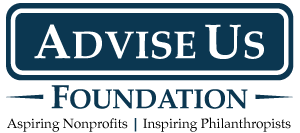The Charitable IRA Rollover, also known as a qualified charitable donation or distribution, offers a tax advantaged way to donate to charity. It permits donors to gift up to $100,000 from their IRA to a public charity. But while popular, the Charitable IRA Rollover suffers from legislative and qualification limitations.
Charitable IRA Rollover – Limited by Legislative Limbo
Every one or two years since 2006 Congress has renewed the Charitable IRA Rollover, but donors and their financial advisors are never sure if it will happen. In 2014 it passed with two weeks left in the year – and only for tax year 2014. Proposed legislation in the House of Representatives would make the Charitable IRA Rollover provision permanent, but the Obama Administration has rejected similar bills in the past. Its legislative fate is uncertain. But even if the Charitable IRA Rollover becomes permanent, it still has limits the legislation does not propose to change.
Charitable IRA Rollover Limits
While popular, the Charitable IRA Rollover provision has restrictions limiting its appeal.
-
Donors qualify for a Charitable IRA Rollover at age 70-1/2 or older.
-
The provision limits contributions to $100,000 annually per person.
-
Donors may not contribute to a donor-advised fund, supporting organization or private foundation (with the exception of a private non-operating foundation meeting conduit rules).
Charitable Alt-IRA – a Better Alternative
No matter what happens in Washington, the Charitable Alt-IRA technique offers many and perhaps most donors a better alternative than the Charitable IRA Rollover. More donors qualify for the Charitable Alt-IRA, with fewer downsides and more advantages. The technique involves contributing long-term appreciated securities to a donor-advised fund, taking an IRA distribution and using the IRA distribution to buy securities at a higher tax basis. While change is always possible, the Charitable Alt-IRA does not require “special” legislation. It depends on established techniques for donating securities and their tax treatment.
Charitable Alt-IRA – More Donors Qualify for More
-
Donors qualifying for an IRA distribution at age 59-1/2 or older qualify for a Charitable Alt-IRA.
-
The only donor contribution limits are the availability of stock and the availability of IRA funds. Standard financial and tax planning considerations apply.
-
Donors may contribute to all of the charities a Charitable IRA Rollover permits, but may also contribute to a donor-advised fund. Donor-advised funds offer donors additional charitable, financial and tax planning benefits.
Charitable Alt-IRA – Contributing More Advantages
The Charitable Alt-IRA offers important advantages over the Charitable IRA Rollover.
-
Donor-advised fund benefits include tax and estate planning options, flexible charitable giving options, and low maintenance costs. Donors can advise grants to charities now, or in future years, and can schedule grant requests.
-
Donors may donate more than the Charitable IRA Rollover $100,000 contribution maximum – there is no formal contribution limit.
-
Contributing appreciated securities from a portfolio can offer donors more strategic giving options than IRA gifts.
-
Donors can use their IRA distribution to buy securities that increase the tax basis of their holdings and/or rebalance their portfolio.
You can learn more about the Charitable Alt-IRA by contacting The Advise Us Fund or visiting the Charitable Alt-IRA for donors or the Charitable Alt-IRA for financial professionals.
____________
Andrew Hibel serves as President and is the Founder of The Advise Us Fund. He is also Chief Operating Officer and Co-Founder of HigherEdJobs. Andrew holds a B.A. in Economics and a M.Ed. from the University of Illinois and a J.D. from Indiana University, Indianapolis. He has been a planned giving officer for Penn State University and Advocate Charitable Foundation and served as Director of Gift Planning and Estate Administration for the Jewish Federation of Metropolitan Chicago.
The information in this blog post is general and educational. It is not intended nor should it be construed as legal, tax, investing or financial advice. Individuals should consult with their own advisor about charitable giving arrangements The Advise Us Fund® may describe.

